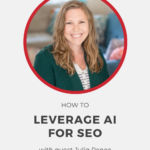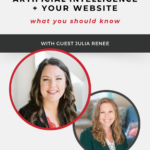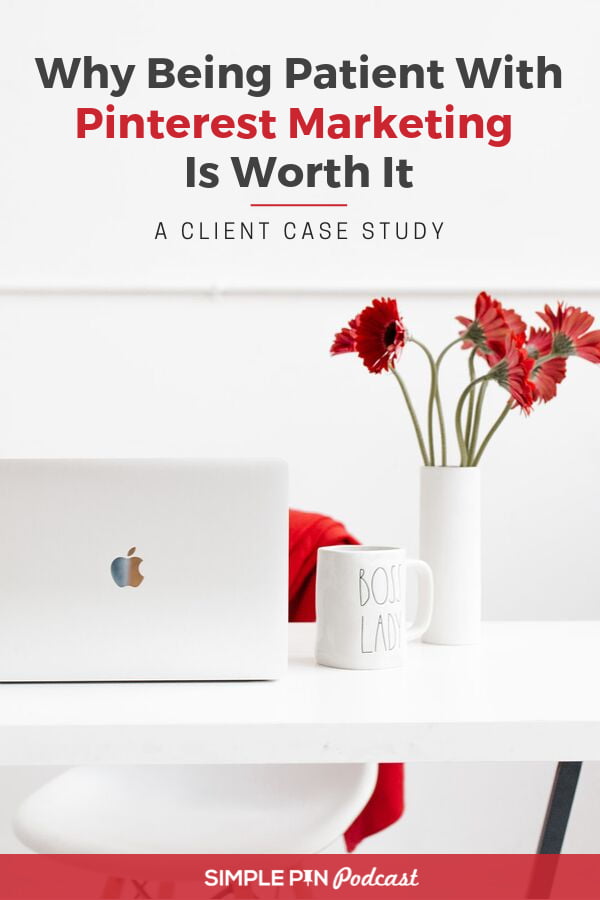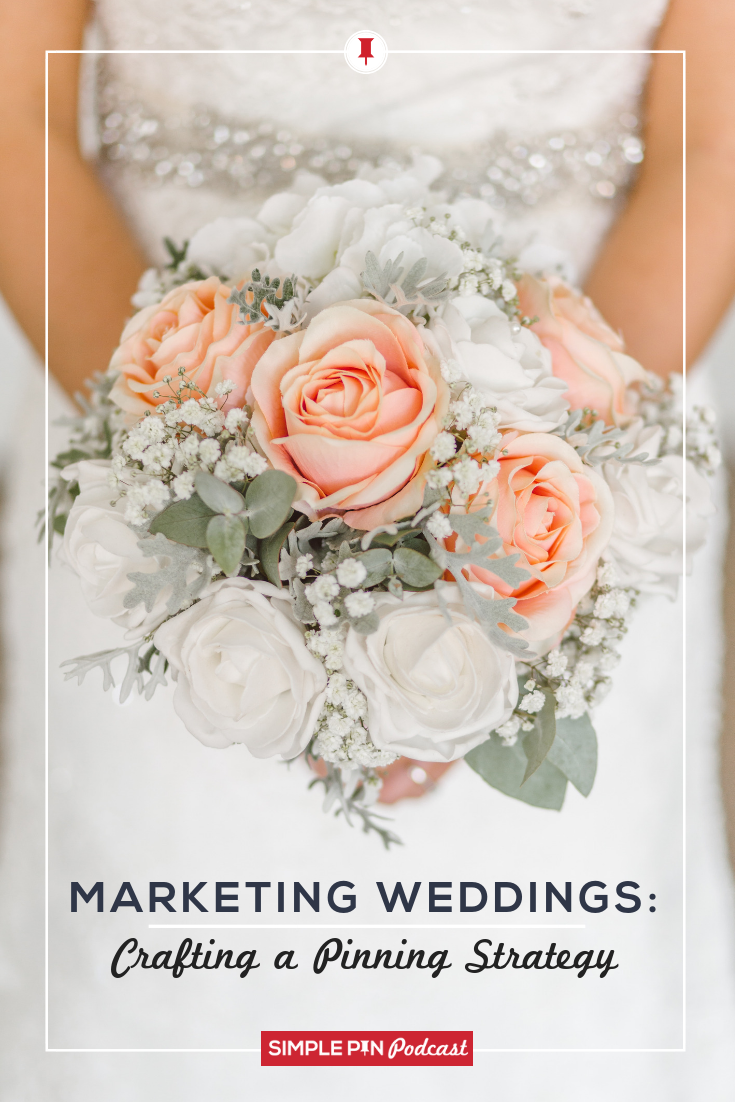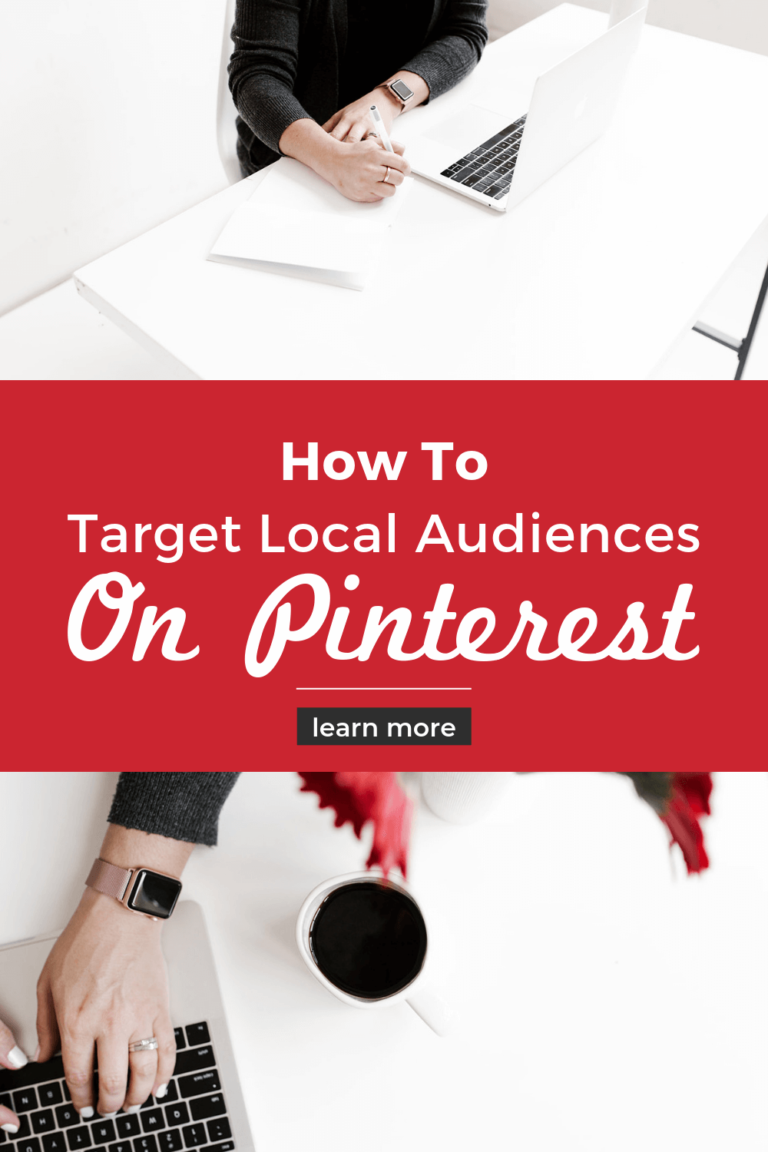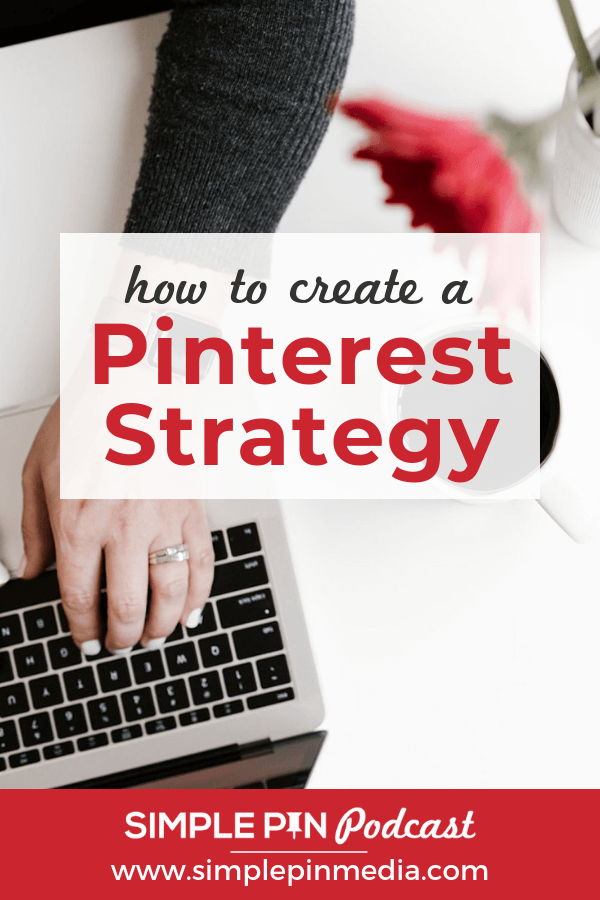AI is dominating our conversations and Google feeds, so we figured it would be a great topic to cover on the podcast. Today we are talking about how to leverage AI for your website and SEO with Julia Renee.
This month we had a Google core update, which we know sends shivers down every content creators spine. If you are just getting started with SEO and google, a Google core update is a broad and significant change to the algorithm that Google uses to rank websites in the SERPs. We’ll talk about what this means and what to do to prepare for it.
This is all still so new. There is not any perfect AI product yet. Kinks are still being worked out, and experiments are still being tried. Pinterest recently rolled out their own version of AI where you can get help writing descriptions and even hashtags (WHAT?!). Before you start freaking out, Simple Pin Media’s account doesn’t have access to this feature yet. We haven’t been able to play around with it. BUT until Pinterest says otherwise, Kate continues to believe that hashtags are not beneficial on Pinterest – the pinner doesn’t use them. This will definitely be an area we keep an eye on.
For now, here is Kate’s conversation with Julia from Julia Renee Consulting | SEO and Pinterest Strategist.
Related: What To Know About Pinterest AI

Google SEO Ranking and AI
Kate: How do you feel about AI? Are you nervous about it? Excited about it? What is your overall view of everything as it has slowly rolled out over this last year?
Julia: I was super against it at first. I refused to use it for the longest time. I actually used the Tailwind AI tool first and it was terrible. After that I tried using ChatGPT and actually began to like it. It was super helpful when I was looking at a blank screen trying to write a blog post and nothing was coming to me. It gave me a really good starting place.
I definitely don’t have ChatGPT do all the work. I don’t copy and paste what it writes straight to my blog. I think it requires a bit of editing, especially in terms of SEO, but it is a really helpful tool to get to a good starting point.
Kate: You’ve experimented with ChatGPT and Google Gemini. I would love to hear you explain some of the differences between the two and why one might work better than the other.
Julia: I will say with all the changes with Gemini, it is frustrating that they’re going to put it behind a paywall and are doing away with the free version. ChatGPT is decent for the free version, so don’t feel like you have to get a paid version to be successful with it.
However, there have been some SEO testers done between Gemini and ChatGPT. The content created by Gemini was doing better than ChatGPT about 75% of the time. So it definitely is the higher quality tool.
Kate: To your earlier point, AI shortens the distance between creativity and your blank screen. I recently used Gemini to help me craft a job description because I knew what I wanted for this particular position but I didn’t know how to put it into a job description layout. It was so nice because out popped a job description! It definitely needed some editing and tweaking like you mentioned, but it made things easier on me. So when it comes to a blog post though, how does Google know the difference between something that is directly copied from an AI program vs something that has been edited and adjusted for SEO? How do they rank it?
Julia: It’s not so much that they can look at a piece of content and determine if it was written by a bot. They are looking at different quality metrics. This is actually really timely because Google is rolling out one of the biggest core updates of all time this month. One thing they are really going to be looking at is what they are calling “unhelpful content”. Basically they are looking at content that is typically written by AI bots because it will be lower quality and less original. Most likely it will be unengaging, prompting visitors and readers to leave the site more quickly. Whereas if you are looking at content that is more engaging and personal, visitors won’t be so fast to click off the site.
Google uses EAT to determine quality ranking – Expertise, Authoritativeness, and Trustworthiness of a website. In late 2022, they added an additional E for Experience. Now they are looking for that personal experience you can write about in your blog post. Bots can’t offer that personal experience.
For example, if you are a food blogger you can share how the recipe is inspired by a restaurant you’ve visited or a family recipe. Google looks at things like that and compares it to other content that isn’t ranked as high because it’s missing those personal examples.
Those are the different types of things that Google is looking at, and why a lot of times AI content isn’t ranking as highly.
Kate: Do you think Google looks at the history of a website? Does historical context make a difference?
Julia: According to a website called Moz, having a stronger domain authority can definitely help. A website that has been around for five or ten years does carry more authority than a website that just launched today.
Kate: What can content creators do to prepare themselves for this new Google core update?
Julia: With this core update they are trying to weed out the spammy websites. Along the way they are looking at content that is unhelpful and unoriginal. So if you are creating the same blog post over and over again or are creating content for the sake of creating content, you may be hit with this update. Look at your analytics and see how different blog posts are performing. Check to see how your audience is engaging on your website.
I highly suggest spending time creating quality content and making sure your audience is engaged with it. If you notice a higher bounce rate or less engagement time, try to find the root of the problem and see how you can encourage people to stay on your site longer.
Kate: What is the positive way to use AI?
Julia: There are several different uses for AI that isn’t just writing a blog post. One way I love to use AI for by taking my blog posts that go more in depth and ask ChatGPT to create a listicle blog post with that information. It is so helpful for reinventing and rewording content you already have.
In terms of SEO you can use it to write your title tags and meta descriptions. I do suggest giving them parameters because otherwise it’ll end up writing a super long meta description that Google will cut off. So just make sure you tell the AI bot exactly what you need.
I do not recommend using AI for keyword research. It can be helpful to get a starting point but it can’t give you the information you need to really determine what will get a high ranking.
I also love using it as a thesaurus. If you feel like you’re using one word way too many times, AI is a great tool to use to expand your vocabulary.
Kate: I love what you said about not using AI to help with keyword research. I recently heard someone say that AI is to your advantage if you are already an expert in your field. You can see where the holes are with incorrect information or terminology. This is probably not going to be the thing that leads your towards expertise. This tool is great to use as a “fast tool”; it is efficient and it speeds up the brainstorming time. It’s not great for finding accurate information. Would you say that that people have caught on to that?
Julia: I would say in general, people have caught on to that. But some are still learning. There have been some case studies done, and one I saw was a wedding planner. She was using ChatGPT to write a blog post about ten different venues. Well two out of the ten venues it had mentioned in the blog post had closed. So it definitely has outdated information. That’s why you have to be fact checking and making sure what it is spitting out is actually acurate.
Kate: When you think of your website what are some other creative uses that you could infuse AI into that is going to be helpful and not hurtful?
Julia: I’ve seen a lot of people use it to write emails, for job descriptions, writing SOPs for your business, taking a transcript from your podcast and having it write a blog post for it. There are seriously so many uses for it.
Kate: So what I’m taking away from this is that we need to be curious about it. Maybe curious with a dose of skepticism to it?
Julia: Yes, stay curious, but don’t trust it completely. Err on the side of caution with the information that you’re getting from ChatGPT and using on your website. Also make sure you are editing it, and adding your personal experience.
Conclusion
There are so many benefits to using AI for SEO. If you are nervous about using it, just jump in! See what it can do for you. Don’t throw away the whole idea of AI because there are too many good things that come along with it.
If you are interested to five deeper into the world of SEO, you can find Julia on all socials @juliareneeconsulting or her website. Feel free to reach out and ask her questions.
More Simple Pin Media Resources:
